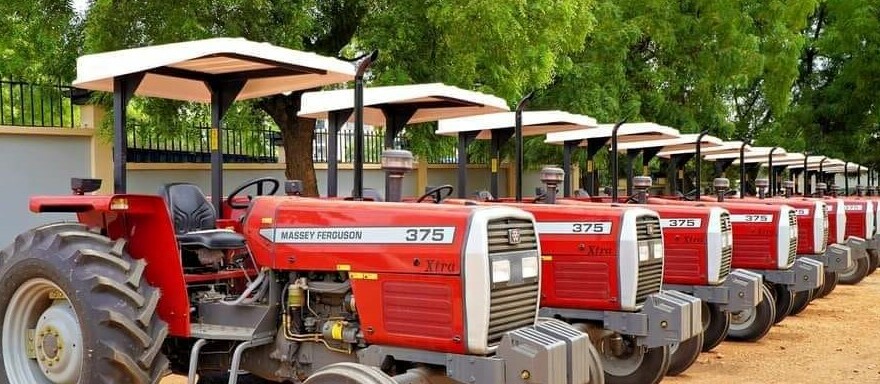Central Equatoria State Governor Emmanuel Adil on Tuesday handed over 13 tractors to the 6 counties of the state to be used in boosting food production.
Speaking during the handover ceremony at the state secretariat, Adil said his government is committed to reviving the economy through agriculture and that the tractors will improve food security.
“On behalf of the Government of Central Equatoria State, I am honored to hand over these tractors as it affirms the revival of the economy through agriculture,” he said. “I direct that these tractors be taken to all counties and urge the agriculture minister to establish cooperative societies.”
“I urge the ministry to establish cooperative societies as this is yet the beginning and we hope for more of this machinery to come,” Governor Adil added.
For his part, Peter Wani Elia Kulang, the Speaker of Central Equatoria State Parliament, welcomed the development, saying the tractors will take services close to the people in the rural areas.
“We are moved by the services that are going to be rendered close to our civil population in the six counties,” he said. “Some of us in parliament wanted the leadership of the government to take services close to the people in the rural areas. This is a good step and we support this program.”
Meanwhile, Peter Lujo Yosepata, the Minister of Cooperatives and Rural Development, said the tractors will empower farmers to produce enough food for consumption and strengthen the economy.
“I want to urge you our farmers, through the guidance of the county commissioners, to utilize these tractors effectively and manage them properly,” he said. “The ministries of agriculture and cooperatives will work closely with farmers to ensure the timely distribution of quality seeds to the farmers.”
Minister Lujo revealed that the distribution of the tractors resulted from a resolution of the state’s council of ministers that each county gets two tractors and one shall be attached to the office of the Juba County commissioner to help farmers around Juba City.
He said that most of the youth and women returning from refugee camps have acquired modern farming methods and skills in value chain addition.




